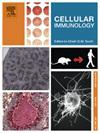Sfrp2-deficient colonic fibroblasts drive mucosal inflammation and epithelial injury in ulcerative colitis
IF 2.9
4区 医学
Q2 CELL BIOLOGY
引用次数: 0
Abstract
Ulcerative colitis (UC) is a chronic inflammatory disorder targeting the colon, which remains clinically challenging due to limited targeted therapies. Although intestinal fibroblasts have emerged as critical regulators of mucosal immunity and tissue repair, their molecular mechanisms in UC pathogenesis are poorly defined. Here, we investigate the functional role of secreted frizzled-related protein 2 (SFRP2, a Wnt signaling modulator) knockdown fibroblasts in immune homeostasis and the severity of UC using Sfrp2flox/flox; Col1a2-Cre mice (fibroblast-specific knockout). In the dextran sulfate sodium (DSS)-induced colitis model, we found SFRP2 in fibroblasts have negative correlation with the severity of UC. That Sfrp2Col1a2 CKO mice exhibited exacerbated colitis symptoms and accelerated inflammatory progression, and showed increased ratio of Th17 cells and decreased ratio of Treg cells. These findings revealed that Sfrp2 in fibroblasts plays a crucial role in protecting against inflammatory responses and T-cell immune dysregulation. Therefore, Sfrp2 may serve as a potential therapeutic target for UC treatment.
在溃疡性结肠炎中,缺乏strp2的结肠成纤维细胞驱动粘膜炎症和上皮损伤
溃疡性结肠炎(UC)是一种以结肠为靶点的慢性炎症性疾病,由于靶向治疗有限,在临床上仍然具有挑战性。虽然肠成纤维细胞已成为粘膜免疫和组织修复的关键调节因子,但其在UC发病机制中的分子机制尚不明确。在这里,我们使用Sfrp2flox/flox研究了分泌卷曲相关蛋白2 (SFRP2,一种Wnt信号调节剂)敲低成纤维细胞在免疫稳态和UC严重程度中的功能作用;Col1a2-Cre小鼠(纤维母细胞特异性敲除)。在葡聚糖硫酸钠(DSS)诱导的结肠炎模型中,我们发现成纤维细胞中SFRP2与UC的严重程度呈负相关。Sfrp2Col1a2 CKO小鼠结肠炎症状加重,炎症进展加快,Th17细胞比例升高,Treg细胞比例降低。这些发现表明,成纤维细胞中的strp2在防止炎症反应和t细胞免疫失调中起着至关重要的作用。因此,strp2可能作为UC治疗的潜在治疗靶点。
本文章由计算机程序翻译,如有差异,请以英文原文为准。
求助全文
约1分钟内获得全文
求助全文
来源期刊

Cellular immunology
生物-免疫学
CiteScore
8.20
自引率
2.30%
发文量
102
审稿时长
30 days
期刊介绍:
Cellular Immunology publishes original investigations concerned with the immunological activities of cells in experimental or clinical situations. The scope of the journal encompasses the broad area of in vitro and in vivo studies of cellular immune responses. Purely clinical descriptive studies are not considered.
Research Areas include:
• Antigen receptor sites
• Autoimmunity
• Delayed-type hypersensitivity or cellular immunity
• Immunologic deficiency states and their reconstitution
• Immunologic surveillance and tumor immunity
• Immunomodulation
• Immunotherapy
• Lymphokines and cytokines
• Nonantibody immunity
• Parasite immunology
• Resistance to intracellular microbial and viral infection
• Thymus and lymphocyte immunobiology
• Transplantation immunology
• Tumor immunity.
 求助内容:
求助内容: 应助结果提醒方式:
应助结果提醒方式:


